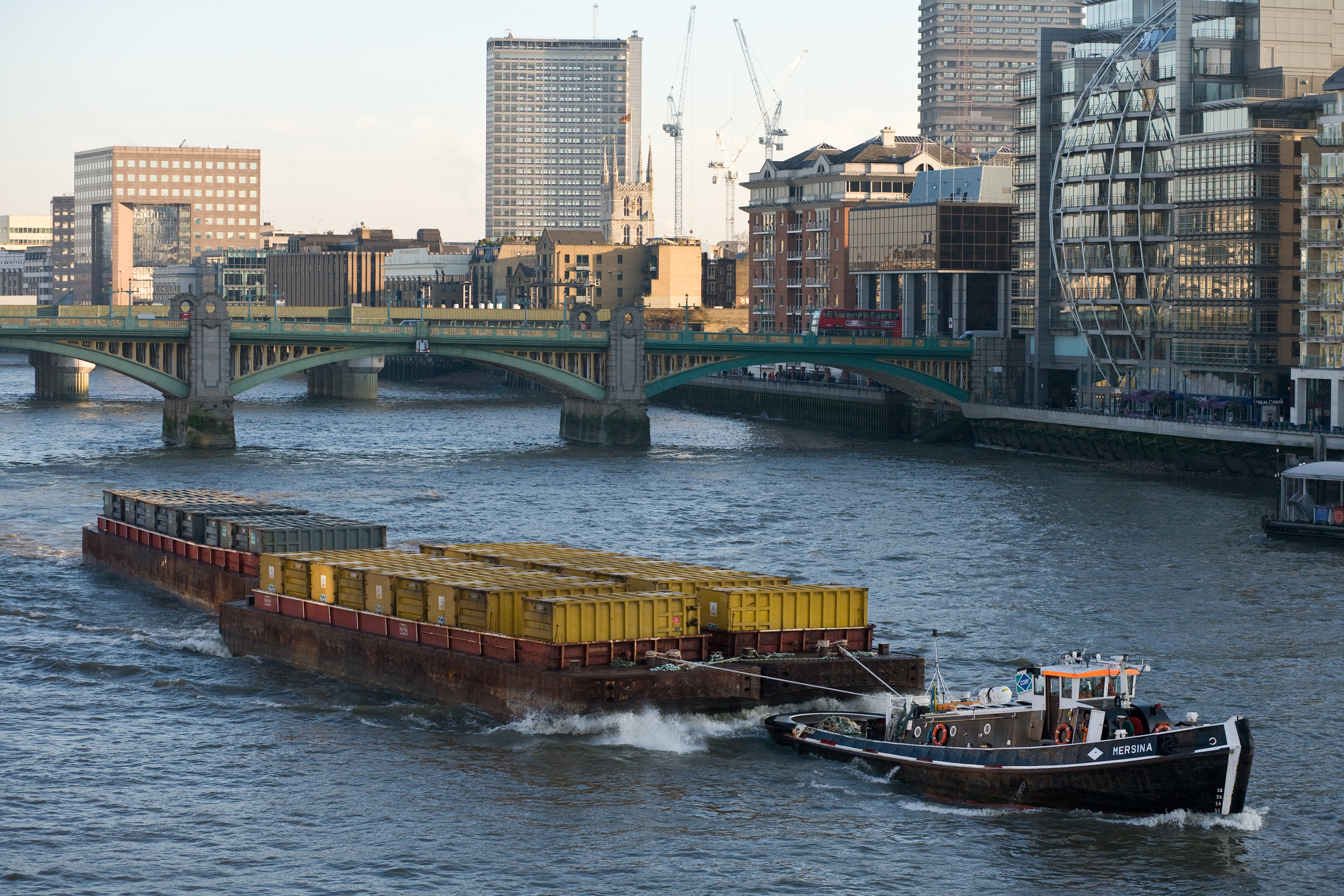
noun
- a capacious, flat-bottomed vessel, usually intended to be pushed or towed, for transporting freight or passengers; lighter.
- a vessel of state used in pageants: elegantly decorated barges on the Grand Canal in Venice.
- Navy. a boat reserved for a flag officer.
- a boat that is heavier and wider than a shell, often used in racing as a training boat.
- New England (chiefly Older Use ). a large, horse-drawn coach or, sometimes, a bus.
verb (used without object), barged, barg·ing.
- to move clumsily; bump into things; collide: to barge through a crowd.
- to move in the slow, heavy manner of a barge.
verb (used with object), barged, barg·ing.
- to carry or transport by barge: Coal and ore had been barged down the Ohio to the Mississippi.
Verb Phrases
- barge in, to intrude, especially rudely: I hated to barge in without an invitation.
- barge into,
- Also barge in on.to force oneself upon, especially rudely; interfere in: to barge into a conversation.
- to bump into; collide with: He started to run away and barged into a passer-by.
noun
- a vessel, usually flat-bottomed and with or without its own power, used for transporting freight, esp on canals
- a vessel, often decorated, used in pageants, for state occasions, etc
- navy a boat allocated to a flag officer, used esp for ceremonial occasions and often carried on board his flagship
- jocular, derogatory any vessel, esp an old or clumsy one
- Australian informal a heavy or cumbersome surfboard
verb
- (intr foll by into) informal to bump (into)
- (tr) informal to push (someone or one’s way) violently
- (intr; foll by into or in) informal to interrupt rudely or clumsilyto barge into a conversation
- (tr) sailing to bear down on (another boat or boats) at the start of a race
- (tr) to transport by barge
- (intr) informal to move slowly or clumsily
c.1300, “small seagoing vessel with sails,” from Old French barge, Old Provençal barca, from Medieval Latin barga, perhaps from Celtic, or perhaps from Latin *barica, from Greek baris “Egyptian boat,” from Coptic bari “small boat.” Meaning “flat-bottomed freight boat” dates from late 15c.
“to journey by barge,” 1590s, from barge (n.). The form barge into and the sense “crash heavily into,” in reference to the rough handling of barges, dates from 1830s, American English. Related: Barged; barging.
 Liberal Dictionary English Dictionary
Liberal Dictionary English Dictionary


